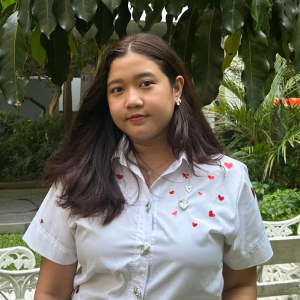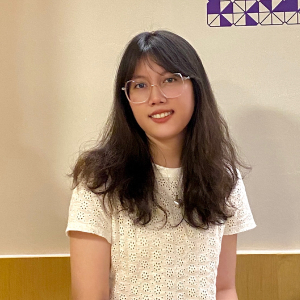Food Innovation, Nutrition and Health (FINH)
Master Degree

Free consultation for this program
We are ready to help you with your difficulties and processing.
Duration
2 years
Study Format
On Campus
No. of Student Mentors
72
Total Tuition Fees
855,600 THB





Free consultation for this program
We are ready to help you with your difficulties and processing.
Duration
2 years
Study Format
On Campus
No. of Student Mentors
72
Total Tuition Fees
855,600 THB





Program
Key information
University
Program structure
Tuition fees
Admissions
Possible Career Pathway
Student's testimonials
F&Qs
ABOUT THIS PROGRAM
The academic program is created and developed within the framework of the project Erasmus+ Capacity Building-MSc Food Processing and Innovation (FOODI), reference number 598987 with co-funding from the EU.
This program encompasses particularly unraveling the food-health nexus and addresses the issues that have not been addressed up to now. This program will develop students’ higher-level thinking skills to gain a deep understanding of the multi-dimensional and multi-sectoral nature of the food security, food safety, and nutrition challenges and to be able to identify the innovative solutions to these challenges, such as the necessity to maximize the utilization of resources and to global supply chain strategy and to integrate the food and nutrition security, food safety homogeneously in all the region. This course aims to address in a sustainable manner to develop the modules as Professional Master Program (1 year), Full Master Degree Program (2 Years), and Doctoral Degree Program (3.5 years) in “Food Innovation, Nutrition, and Health (FINH)” to cater the graduates with the holistic knowledge. The course will provide the students with the skills necessary to function in roles in the food industry, public health sector, and food regulatory agencies.
Graduates will develop enhanced knowledge, skills, and competencies in relation to food and nutrition security, particularly in areas of innovative food product development, policy analysis and implementation in food safety, product design, implementation and management, and impact assessment. These skills will be situated in an understanding of the multi-sectoral nature of the challenges of food insecurity, malnutrition, and designer foods (Superfoods). Within the industry, graduates will work in areas such as research and development, product innovation, hygienic design, technical sales, product quality enhancement with the distinct advantage of bringing a nutrition perspective to all aspects of the food industry including product development, marketing, and sales. Within public health and regulatory agencies, graduates will work in the areas of nutrition and health promotions, food labeling regulations, and/or safety and Quality Standardization.
FOCUS AREAS
- Food Innovation,
- Design Thinking and Healthy Food Product Development
- Nutrition, Diet and Health
- Food Waste Valorization and Bio-circular Green Economy.
- Traditional Foods, Bioprocessing and Biotransformations
- Functional Foods and Neutraceuticals
- Nutrigenomics and Personalized Foods
- Food Safety Management Systems
- Nanotechnology in Food Product Design and Delivery Systems
- Delivery and pharmacokinetics of bioactive molecules
KEY INFORMATION
Degree
Master
Language
English
Location
Thailand
Intake Start Date
Jan 2026
Study Format
On Campus
Duration
2 years
Program Highlight
Standard Program
Total Semester
4
Total Tuition Fees
855,600 THB / in total
Application deadline
Jul 2026
ABOUT UNIVERSITY

Asian Institute of Technology, 58 Moo 9, Km. 42, Paholyothin Highway, Klong Luang, Pathumthani 12120, Thailand, Khlong Nueng, Pathum Thani 12120 Thailand
Asia Ranking 2026
EduRank Ranking 426
Programs
91
Students
Not Provided Yet
The Asian Institute of Technology (AIT) is an international English-speaking postgraduate institution, focusing on engineering, sustainability, and management studies. AIT’s rigorous academic, research, and experiential outreach programs prepare graduates for professional success and leadership roles in Asia and beyond.
Founded in 1959, AIT offers the opportunity to study at an institution in Asia which possesses a global reputation. Going forward, AIT will be stressing its global connections, injection of innovation into research and teaching, its relevance to industry, and its nurturing of entrepreneurship, while continuing to fulfill its social impact and capacity building role. Sitting on a beautiful green campus located just north of Bangkok, Thailand, AIT operates as a multicultural community where a cosmopolitan approach to living and learning is the rule. You will meet and study with people from all around the world.
Today, AIT’s internationally recognized engineering, environment, and management graduates are highly sought after by employers in their home countryand elsewhere. Across many walks of life in Asia, AIT alumni have distinguished themselves as CEO’s of private and state enterprises, as business owners, as well-respected researchers and faculty, and as senior university and government officials.
See more
PROGRAM STRUCTURE
COURSE STRUCTURE
Course Code Course Number of Credits Description/Course Objective Semester
ED87.01 Food Safety Standardizations, Risk Management, and Traceability Systems 4 (4-0)
The course emphasizes food quality control as the mechanism for the prevention of food spoilage at the “farm-to-fork” level and food-borne illness, thus securing good public health. This subject helps the student to understand how food science and business stakeholders will be able to control the food safety hazards associated with the food including minimization of risk by understanding the food safety management systems, food quality management systems, hygienic design and processes and innovations in traceability systems. (Aug Sem)
ED87.02 Gut Physiology, Metabolic Diseases, and Health 3 (3-0)
This course aims to explain how humans can extract energy from macronutrients (i.e. carbohydrates, proteins and lipids) with the progression from their digestion, absorption and transportation. Selected metabolic pathways, their regulatory mechanism and interaction of the metabolic pathways and their effects on human health.This course enables the students to understand the complex relationship between gut and health in a simple manner. (Aug Sem)
ED87.03 Sustainable Food Process Design 3 (3-0)
This course aims to provide the scientific knowledge of food manufacturing and its link with the sustainable and innovative food processing technology by emphasizing on the principles and design of the systems including minimal thermal processing and green technology. In this subject, students will be exposed to the latest technologies and will focus on process control, food quality and safety, food packaging, and sustainable food processing. (Aug Sem)
ED87.04 Molecular Nutrition, Food Toxicology, and Health 3 (3-0)
This course aims to provide knowledge on the molecular interactions of food macromolecules and micromolecules and their effects on processing, formation of hazardous, non-hazardous compounds and nutritional attributes in complex food systems and their effects on human health. In this subject, the students will be able to learn to understand the principles and mechanisms at molecular and cellular levels, to discover the mechanism driving the relationship between food nutrition and health. (Jan Sem)
ED87.05 Design Thinking, and Innovations in Healthy Food Product Development 2 (2-3)
This course will offer an immersive experience in Design Thinking as a tool for innovative ideas and strategy development in Food Processing. Students will start in the field, where they discover the needs of the industry as a challenge. The students will be able to iterate application/ industrial oriented ideas to develop a range of promising possible solutions, create rough prototypes to take back out into the field and try to test it with real people in the target audience. (Jan Sem)
ED87.06 Properties of Food Biomaterials and Nutrients 3 (1-6)
This course familiarizes students with various physicochemical properties of foods, biomaterials and nutrients. At the end of the course, students will be able to: 1. Identify the properties of foods and biomaterials 2. Describe and perform related measurement methods 3. Relate engineering properties of food and biological material to process design and quality control. (Jan Sem)
ED87.07 Sustainable Food Production 3 (3-0)
This course has been designed with a rationale to identify and formulate the global challenges of sustainable food production and consumption. Alongside, it aims to define sustainable food production from multiple perspectives through critical thinking skills. The students are expected to take an active role in dealing with the challenges of our time through envisioning opportunities and challenging values of food production. (Aug Sem)
ED87.08 Consumer Behaviour, Diet Preferences, and Marketing 3 (3-0)
This subject helps students to understand the consumer behavioral patterns of food demand and helps students develop an in-depth understanding of dietary preferences and marketing of the food industry. (Aug Sem)
ED87.09 Food Supply Chain Management and Sustainability 3 (3-0)
This subject helps students to provide advanced knowledge of various management issues related to food supply chains, including farm to post-harvest management, and on innovative concepts of sustainability and traceability for maintaining the food quality during processing, storage, and distribution. (Jan Sem)
ED73.15 Processing Effects on Functional Components of Foods 3 (3-0)
This subject helps students to provide knowledge on the molecular interactions of components and their effects on processing, nutritional attributes in complex food systems. (Jan Sem)
ED80.10 Statistical Methods for Research 3 (3-0)
This subject aims to impart knowledge on the essential statistical methods for designing, conduct, data analysis, and interpretations of both experimental and observational data. This course will provide the students with statistical skills and techniques to apply them to data analysis and interpretation. (Jan Sem)
Thesis/ Dissertation 24/72
Internship 0
TUITION FEES
Tuition fees
855,600 THB / in total
Application fees
800 THB
Application fee cannot be refunded.
Get a Free Consultation!
Not sure where to start with your application?
Our student ambassadors can walk you through the admission process, step by step.
ADMISSIONS PROCESS

Hold a Bachelor’s degree (normally from a four-year program), or its equivalent, in an appropriate field of study from an institution of good standing acceptable to AIT;
Have undergraduate grades significantly above average; the minimum cGPA requirement for admission to the Master’s Program is 2.75 or equivalent, at the Bachelor’s degree level;
English Proficiency Requirement: AIT-EET: 6; IELTS Academic: overall 6 (writing 6); TOEFL iBT: overall 80 (writing 21-23); & PTE Academic: overall 52 (writing 62-73)
Be in satisfactory physical and mental health, and have a record of good conduct;
For the Professional Master’s (PM) degree program, in addition to the above-mentioned eligibility requirements, an applicant must:
Have at least 3 years of work experience in areas related to the academic program at AIT and
Be executives in organizations/companies.
Preferred Background
- Food Science, Food Technology, Food Engineering
- Nutrition Science
- Biotechnology,
- Bioprocess Engineering and Technology
- Chemical Engineering and Biochemical Engineering
- Industrial Technology
- Science in Microbiology
- Science in Animal Produce Food Safety
- Pharmacy
- Science in Agriculture, Fisheries and Livestock.
- Science in Food Safety
- Veterinary Medicine
- Agriculture, Fisheries and Animal Science related Degree.
- Medicine
Possible Career Pathway
A career in Food Innovation, Nutrition, and Health (FINH) can lead to roles in the food industry, health and wellness sectors, and research institutions. Graduates can work as food product developers, nutritional scientists, or health consultants, focusing on creating innovative, sustainable, and healthy food products. They may also engage in roles related to food safety management, supply chain sustainability, and consumer behavior analysis. Opportunities in public health, regulatory bodies, or academia are also possible, where professionals can contribute to shaping food policies, advancing nutritional research, and promoting health through diet and food innovation.
STUDENT's TESTIMONIALS
No testimonials available just yet — stay tuned!
FAQs
Question :
Can I apply to two Academic Programs at the same time?
Answer :
No. You can only apply to one academic program at any time.
Question :
Do you have academic exchange programs and scholarships for those?
Answer :
2 Year Master’s Degree students normally study for 22 months (enrolled in August Intake) and 24 months (enrolled in January Intake) which includes four semesters, two short breaks and one long break between semesters. Doctoral students study for at least 42 months or seven semesters. 1-year Master, Professional Master Program and the Diploma Programs are at least 12 months or two semesters and the Certificate Program is 5 months or one semester.
Question :
What are Unified programs?
Answer :
Unified Programs integrate undergraduate studies with graduate studies into a seamless “Unified” program. For example, undergraduate students may join AIT in their final year to complete their undergraduate degree and at the same time start their Master program at AIT. AIT has several Unified programs with partner universities managed by Office of Special Degree Program.
Question :
What is the AIT English Entry Test (AIT-EET)?
Answer :
The Language Center (LC) offers a 90-minute in-house test of English proficiency called the AIT English Entry Test (EET). The score is based on a nine-point scale similar to the IELTS test. The Writing score, which is the most important at AIT, is based on an essay. The test result will be e-mailed within 7 days. The LC will report the test result to the AIT Admissions only if the score is satisfactory for provisional admission. If applicants fail to obtain the minimum score requirements for admission, they may take the test again.
Question :
Will you waive my admission interviews since I was admitted last year but chose not to register?
Answer :
No. As the application assessment varies from each intake, your application in the next intake must be as competitive as those with others applying in that same intake.
Question :
Do I need to apply for the scholarships listed on the website?
Answer :
You do not need to apply separately for the scholarships. Once you have submitted the application online, your will be automatically considered for all scholarships for which the deadline has not expired and for which you are eligible. The type and amount of scholarship given to applicants is on a competitive basis with the main criteria of academic standing. Should you wish to be considered for full scholarships, you must submit an Official English score of 6 including writing and overall that is not older than 2 years.
Question :
How much is the application processing fee?
Answer :
The processing fee is Baht 800 or US$25.
Question :
If I apply and accepted this intake, can I defer to the next intake with the same condition?
Answer :
Yes, you can defer your entry until the next academic semester. However, the financial conditions of the admission may change depending on the competitive assessment for the next semester. You are also required to pay the application processing fee to reactivate your admission.
Question :
When is the school intake and the application deadline?
Answer :
The AIT academic year consists of two semesters: January and August for School of Engineering and Technology (SET) and School of Environment Resources and Development (SERD).